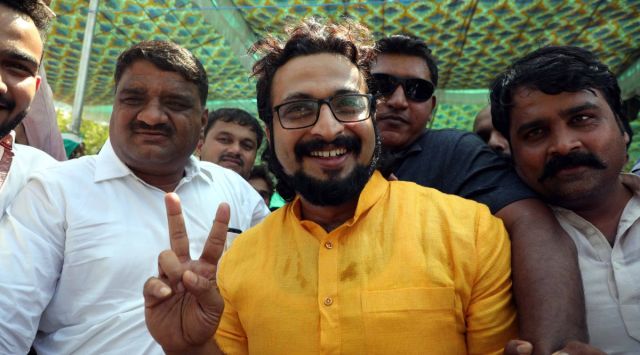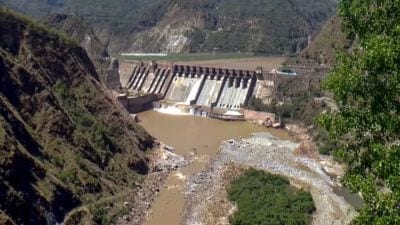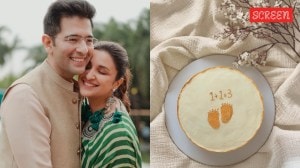On Chhatrapati Shivaji Maharaj’s birth anniversary, NCP’s Amol Kolhe issues warning to Maha Govt over saffron flag
Along with his followers, Amol Kolhe held a protest march holding a huge saffron flag to the Shivneri Fort, where the Maratha warrior king was born on February 19, 1630.
 Amol Kolhe represents the Shirur constituency in the Lok Sabha. (Express photo/File)
Amol Kolhe represents the Shirur constituency in the Lok Sabha. (Express photo/File) On the birth anniversary of Chhatrapati Shivaji Maharaj Sunday, NCP MP Amol Kolhe issued an ultimatum to the Maharashtra government asking it to put a “bhagwa” (saffron) flag atop the Shivneri Fort near Junnar in the state’s Pune district within a year.
Along with his followers, Kolhe held a protest march holding a huge saffron flag to the Shivneri Fort, where the Maratha warrior king was born on February 19, 1630.
Speaking to reporters, Kolhe said, “As a pride of Maharashtra I had been demanding a bhagwa flag on the Shivneri Fort since 2021. I have raised this issue in the Lok Sabha twice. I have written letters to the Centre and the Archeological Survey of India (ASI). But they have rejected it. Now, we will pursue it for one year. If they don’t accept our demand we will start a statewide agitation”.
Kolhe, who represents the Shirur constituency in the Lok Sabha, said, “Today when deputy CM (Devendra Fadnavis) said Chhatrapati Shivaji Maharaj’s mavla (foot soldier) is leading Maharashtra, we were hoping they would accept our promise to put a saffron flag on Shivneri Fort. Unfortunately, there was no mention. It was disappointing”.
The firebrand MP also urged the government to get central funds for the fort’s beautification work as it was done in Raigad. In 2017, then-chief minister Devendra Fadnavis had put up a proposal before the Centre seeking Rs 600 crore for the restoration and beautification of Raigad Fort.
Kolhe said, “Fadnavis should take the initiative for all forts, including Shivneri which is associated with our most revered and beloved king Chhatrapati Shivaji Maharaj”.
In 2021, the Shivneri Fort was put on the tentative list of sites of Unesco World Heritage serial nomination of Maratha Military Architecture in Maharashtra.







